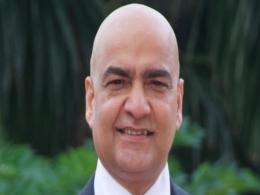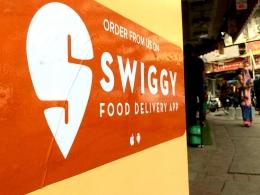Consumer goods companies were upbeat in the first half of 2016, pinning their hopes on an above-average monsoon that would revive rural demand. Besides, the implementation of the Seventh Pay Commission's recommendations, which would leave more money with the country's middle class, was likely to be a shot in the arm.
But just when the economy seemed to be getting into a cruise mode came the fateful evening of 8 November, when Prime Minister Narendra Modi announced the scrapping of all Rs 500 and Rs 1,000 banknotes. The move hit the supply chain hard, and hurt everyone from individuals to small traders and large companies. As a result, consumption dwindled across the board, further affecting sentiment.
Here's a quick look at key themes that played out in the sector during the year.
Mixed consumer sentiment
Consumer sentiment, especially in rural belts, remained muted in 2016, as companies faced a slowdown in demand and pressure on volumes, especially after two consecutive years of deficient monsoon. The scenario was no different this year, say analysts.
“Rural demand growth used to be 1.5 to 1.8 times urban growth in the past. However, over the last four-five quarters, it slowed down significantly and is growing just in line with urban demand,†said Pinaki Ranjan Mishra, partner and national leader for consumer practice at audit and consulting firm EY.
The Seventh Pay Commission’s pay hikes were supposed to boost consumer spending across consumer goods, retail, automobiles, and travel and tourism. Similarly, benefits of the One Rank, One Pension (OROP) scheme for defence personnel were expected to result in an increase in discretionary spending across categories. However, demonetisation knocked the wind out of everyone's sails, significantly disrupting demand.
Research by KPMG shows that sales of fast-moving consumer goods products fell 20-40% following demonetisation. Even automobile sales, which are a proxy for consumer sentiment, took a body blow after Diwali. Two-wheeler sales, an indicator of the health of rural economy, fell nearly 6% as the currency pullback affected sales.
FDI in food retail: A non-starter
On the policy front, the government's decision to permit 100% foreign direct investment (FDI) in food retail via the automatic approval route proved to be a non-starter despite the long wait. Though the announcement came in the middle of the year, no major foreign player has evinced interest so far.
Policymakers expected the move to bring in foreign investments, especially to set up backend infrastructure, and hoped that it will encourage procurement from Indian enterprises. “The move was expected to result in several foreign retailers taking advantage of the relaxation and outline strong expansion plans,†said Rajat Wahi, partner and head of consumer markets at audit firm KPMG in India.
However, it is likely that clauses regarding mandatory investments and sourcing dithered away multinationals like Walmart and Tesco from foraying into the Indian market.
Top deck hiring
The year witnessed several C-suite executives land new jobs, especially in the retail sector. Aditya Birla Retail, which runs the fourth-largest supermarket chain in the country, appointed Mohit Kampani, former managing director of Spencer’s Retail, as chief executive officer to lead the business. Future Group CEO Kishore Biyani was appointed managing director of Bharti Retail as part of the board's reconstitution following their merger announced last year.
ITC Ltd, India's most valued consumer products maker, named Sanjiv Puri as its chief operating officer. The move indicated that Puri, a director who was heading ITC’s consumer products division, is the front-runner to become the next chairman of India’s fourth-most valued firm when incumbent YC Deveshwar steps aside and takes on a non-executive position at the end of his tenure in February next year.
In another significant promotion within the company, ITC appointed Hemant Malik as the new CEO for its packaged foods business.
In the education sector, Zee Learn Ltd, which operates the country's largest franchised pre-school chain under the KidZee brand, appointed former Manipal Global Education Services executive Debshankar Mukhopadhyay as CEO.
Fashion apparel: A big hit with PE firms
The year saw significant fund-raising activity in the fashion apparel category. The deal between TCNS Clothing Co Pvt. Ltd, which owns the W brand of clothing for women, and US-based private equity investor TA Associates Management LP is the biggest-ever PE deal in the apparel industry.
In another large deal, Renuka Ramnath-led Multiples Alternate Asset Management Pvt. Ltd agreed to buy a 10% stake in textile firm Arvind Ltd’s brand business arm. PremjiInvest, the private investment arm of Wipro chairman Azim Premji, was involved in the third-biggest deal in the segment when it bought the entire stake of private equity firm L Capital in ethnic retailer Fabindia.
The dairy sector, which is otherwise dominated by strong regional brands, saw aggressive expansion by France's Groupe Lactalis SA. Lactalis, instead of building a business from scratch, is spreading bets in the country through acquisition of strong regional players. Two years after acquiring India's second-largest private dairy firm, Tirumala Milk Products, Lactalis struck a deal this year to buy Mumbai-listed Anik Industries Ltd. This deal catapulted the MNC to a point where it is neck and neck with India's top private dairy, Hatsun Agro Product Ltd, in terms of revenue.
Like this report? Sign up for our daily newsletter to get our top reports.







